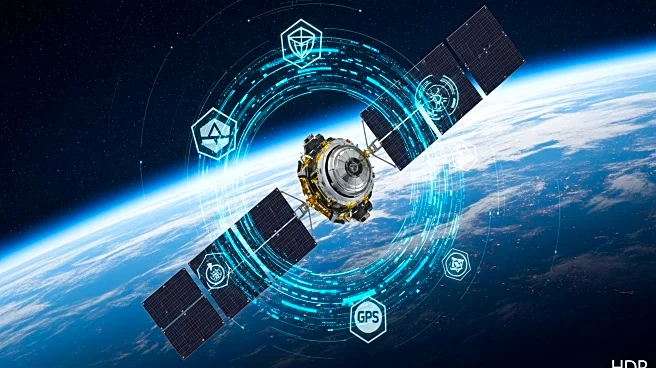What's Happening?
The escalation of Russian GPS jamming and spoofing in Europe has become a significant threat, impacting global navigation satellite systems (GNSS) and creating vulnerabilities in aviation, maritime, and critical infrastructure. Since 2022, Russia has intensified electronic warfare tactics, particularly in the Baltic region and Poland, leading to disruptions in international shipping lanes. These actions have forced governments and private firms to invest in resilient infrastructure and countermeasures. The European Union has responded by launching the Galileo Open Service Navigation Message Authentication (OSNMA) and investing in resilient positioning, navigation, and timing systems. The global anti-jamming market is projected to grow significantly, driven by demand for solutions to counter Russian electronic warfare campaigns.
Why It's Important?
The geopolitical tensions resulting from Russian GPS jamming have profound implications for the aerospace and cybersecurity sectors. The disruptions have increased operational inefficiencies and exposed the fragility of global supply chains reliant on precise navigation. The U.S. Air Force's contract with Lockheed Martin for advanced anti-jamming receivers highlights the strategic importance of resilient navigation systems. Additionally, startups in AI-driven manufacturing and cybersecurity are capitalizing on the demand for innovative solutions. However, investors face risks due to regulatory uncertainties and potential supply chain disruptions from China's export restrictions on rare earth minerals.
What's Next?
The aerospace and cybersecurity sectors must navigate a landscape marked by hybrid warfare and technological disruption. Firms that innovate in AI-driven anti-jamming and resilient PNT systems are likely to thrive. Strategic partnerships with regional governments will be crucial for success. The EU's emphasis on strategic autonomy may limit market access for non-European firms, while the evolution of Russian spoofing techniques poses ongoing challenges. Companies must balance exposure to high-growth markets with hedging against geopolitical and regulatory volatility.
Beyond the Headlines
The escalation of GPS jamming incidents underscores the need for robust cybersecurity measures and resilient infrastructure. The convergence of AI, aerospace, and cybersecurity reflects broader trends in technological innovation. Ethical considerations arise as governments and private firms invest heavily in defense technologies. The long-term implications include shifts in global security dynamics and the potential for increased geopolitical tensions.










